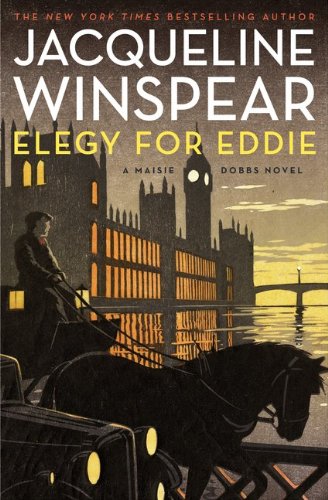Book description:
Early April 1933. To the costermongers of Covent Garden—sellers of fruit and vegetables on the streets of London—Eddie Pettit was a gentle soul with a near-magical gift for working with horses. When Eddie is killed in a violent accident, the grieving costers are deeply skeptical about the cause of his death. Who would want to kill Eddie—and why?
Maisie Dobbs' father, Frankie, had been a costermonger, so she had known the men since childhood. She remembers Eddie fondly and is determined to offer her help. But it soon becomes clear that powerful political and financial forces are equally determined to prevent her from learning the truth behind Eddie's death. Plunging into the investigation, Maisie begins her search for answers on the working-class streets of Lambeth where Eddie had lived and where she had grown up. The inquiry quickly leads her to a callous press baron; a has-been politician named Winston Churchill, lingering in the hinterlands of power; and, most surprisingly, to Douglas Partridge, the husband of her dearest friend, Priscilla. As Maisie uncovers lies and manipulation on a national scale, she must decide whether to risk it all to see justice done.
In this latest installment in the series, Maisie is hired by the costermongers of her childhood to investigate the death of one of their own. What seems like a simple task eventually reveals a conspiracy involving the highest levels of society. While the mystery itself is not that complicated, the appeal of this books lies in Maisie's efforts to reconcile the girl she was with the woman she has become. She wrestles with questions of morality and independence, juggling the expectations of others with her dreams for herself. I enjoy watching her struggle to deal with her new-found affluence, attempting to help those in her life that are less fortunate without creating resentment or hostility.
This series is a masterful look at England in the post-WWI years, and has given me a much better perspective on the war-weariness that made so many willing to turn a blind eye to the dangers of the rise of the Nazi party in Germany. Following as they do the struggles of women in this period, these books highlight the sad realities of a generation of women faced with a shortage of men to marry and forced to make their own way in a world not yet ready to accept that necessity.

1 comment:
I just read the second book in this series and I look forward to discovering the later books in the series too.
Post a Comment